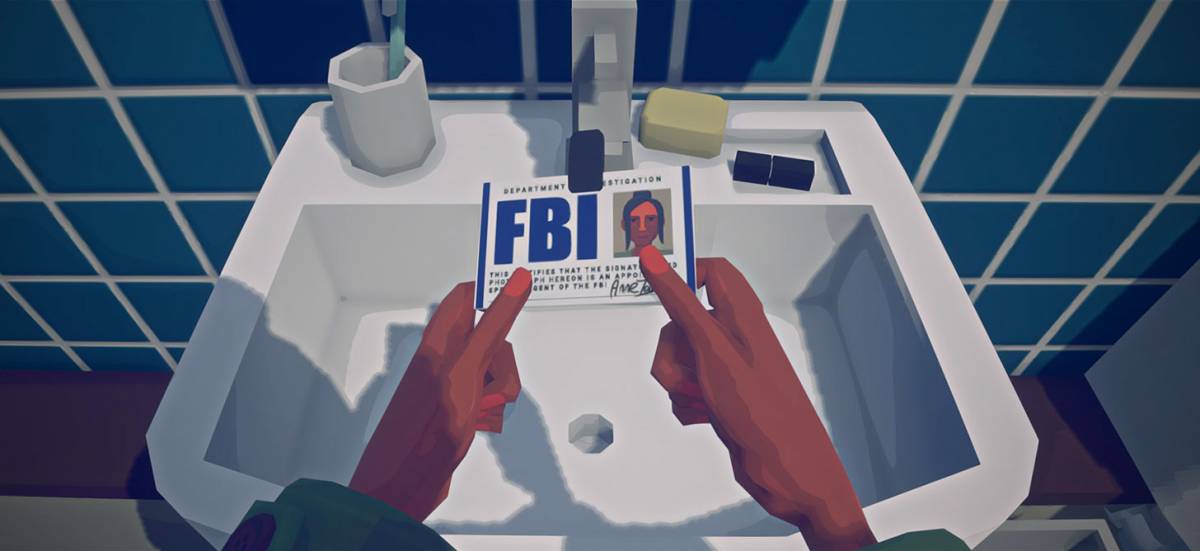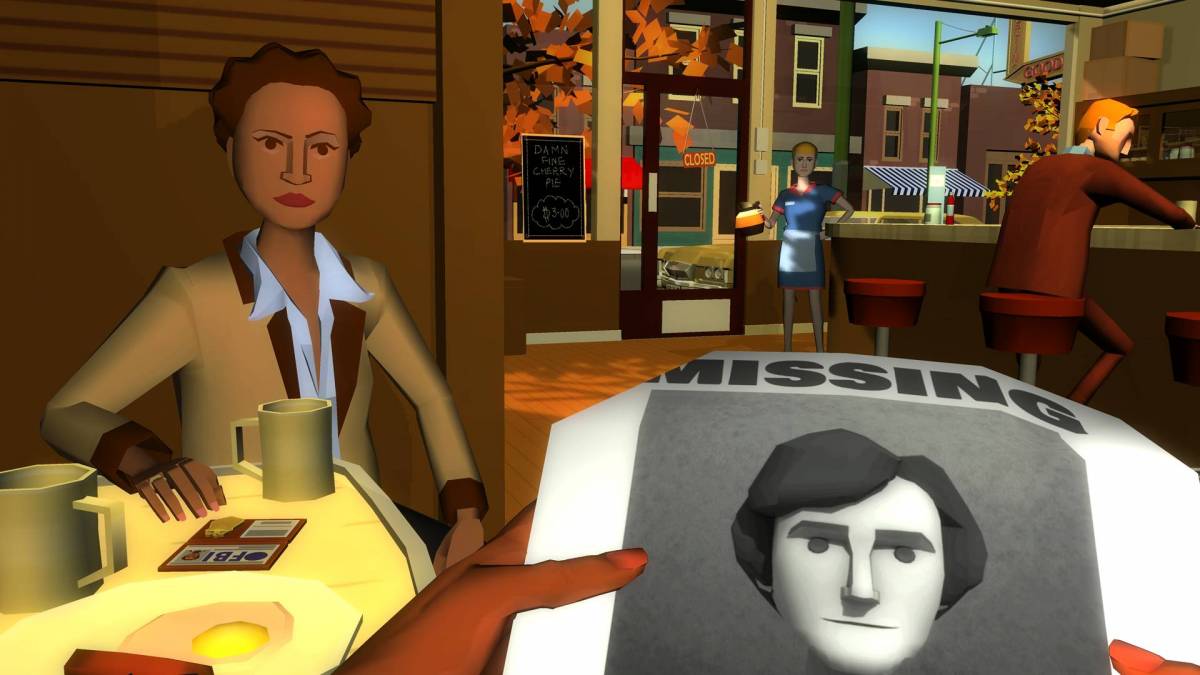This is a late review, but it had to be that way. I’ve spent a lot of time replaying and looking back over my experiences with this game. I’ve wavered in-between it being a masterpiece and an average first-person adventure, although the game seems to fall somewhere in-between the two. I’m certain my thoughts on Virginia will change over the coming months, but this is how I feel right here, right now.
Much like Gone Home before it, Virginia finds itself rooted in nineties culture and where Gone Home had references to TV guides which featured classic 90’s television shows, Virginia also holds the shows of this decade close to its heart, those who watched The X-Files and Twin Peaks will instantly be at home here. I love the term walking simulator, it’s a term that no doubt was coined to make a mockery of story driven first person experiences, those that lack puzzles and difficulty but find their focus looking toward exploration and storytelling.
Dear Esther, The Vanishing of Ethan Carter and the aforementioned Gone Home are all proud examples of the genre and people who love these games have taken on the genre title of ‘walking simulator’ as a title of pride as opposed to an insult. This being said I wouldn’t particularly class Virginia as a walking simulator, it seems to be an entirely unique beast.
The game follows brand spanking new FBI graduate Anne Tarver who is given the job of investigating another FBI agent, Maria Halperin. The pair are then assigned to a case involving the disappearance of a boy named Lucas Fairfax in the town of Kingdom, Virginia. Set in 1992, the game begins to reek of the 90’s right from the off when Anne first ventures down to Maria’s basement office, which is so very reminiscent of Fox Mulder’s office in the X-Files, complete with slide projector. Virginia really wants you to recall the aforementioned show and also has at least one near direct reference to Twin Peaks. It really calls to people who remember these shows, however it is not necessary to know them before playing. Interestingly, Virginia doesn’t want you to feel like you are the detective of the case, but are playing the role of a detective in a television programme of that era. The game feels like it wants to be a television show from this era, and it plays in a similar fashion. Sudden jump cuts and well timed fades really make you feel you could be watching this mystery from the point of view of a viewer or perhaps that someone is watching you on your own adventure.

One moment you are walking down a flight of stairs and the next you are approaching a door in a dimly lit corridor; this could easily be distracting or disorientating but it works perfectly, making you feel that you’ve walked through an entire police department or taken a long taxi drive in the space of maybe a minute or so. This tools are imperative for Virginia to succeed as it relies heavily on its pacing. Virginia gives you some space to look around and explore for clues but does not give you total freedom, as it would ruin the flow of the game. This is both a bad and good thing – the story moves along very well but it does feel as though it’s pushing you through the game and not as an inhabitant of the world.
One of the aspects of Virginia which has been impossible to ignore is the lack of dialogue. The decision of creators Jonathan Burroughs and Terry Kenny was due to the small size of their studio Variable State but felt it was a creative constraint they could work in their favour and once again it works, to an extent. The fact that no one talks in Virginia makes the player put words into the mouths of the characters. Each player’s idea of what Halperin and Tarver sound like will be unique to that player, and the story will vary slightly in each player’s eyes. It’s the video game equivalent of reading a book as it requires imagination and makes you work mentally to figure out the story and how everything fits together.
However, the lack of dialogue also brings issues of its own. I felt on numerous occasions that Virginia had a more traditional style of storytelling and that the game would regale me the story of a missing boy in small town America. Even having played the game through a few times now, there are still some scenes that I’m unclear on and the lack of dialogue sometimes made me feel like an outsider looking into the world of Virginia, instead of being inside the world itself. The game seems to lose focus in the final act, becoming even slightly more obscure. The story skews off, not letting you know what is real and what isn’t and while that makes for some interesting debate as to what happens, it doesn’t really allow for any closure on the disappearance of Lucas Fairfax or the future of Tarver and Halperin, which for me was a slight disappointment. The lack of voice work does in turn mean a lot of effort has been put into Virginia’s soundtrack. Choreographed by Lyndon Holland it is one of the highlights of the game, it really evokes the feeling of the likes of Fargo and Twin Peaks and is perfect in terms of tone.

Modern game development is an expensive process which can make or break a studio, so it’s difficult to blame studios making yearly updates such as FIFA or Call of Duty and I do feel it’s important to support a studio that is doing something different, also it’s nice to see a game the likes of which hasn’t been seen before. Virginia is a fascinating game but it’s certainly not for everyone. I enjoyed it and found the tone and style wonderful: the idea of putting the story together yourself is a good twist, but ultimately I felt the story wasn’t developed enough and doesn’t focus enough on the disappearance, instead ignoring that plot thread and focusing on the relationship of Virginia’s two main characters. In addition, the lack of dialogue made the story feel too loose and too open to interpretation – it completely lacked any certainty.
The game leaves a lot to the player, although there’s little character development in comparison to other games in its genre. That being said, Virginia is definitely worth a play if you enjoyed other first-person adventure games, but you’ll find it different to games of its ilk.
Some of the coverage you find on Cultured Vultures contains affiliate links, which provide us with small commissions based on purchases made from visiting our site. We cover gaming news, movie reviews, wrestling and much more.



